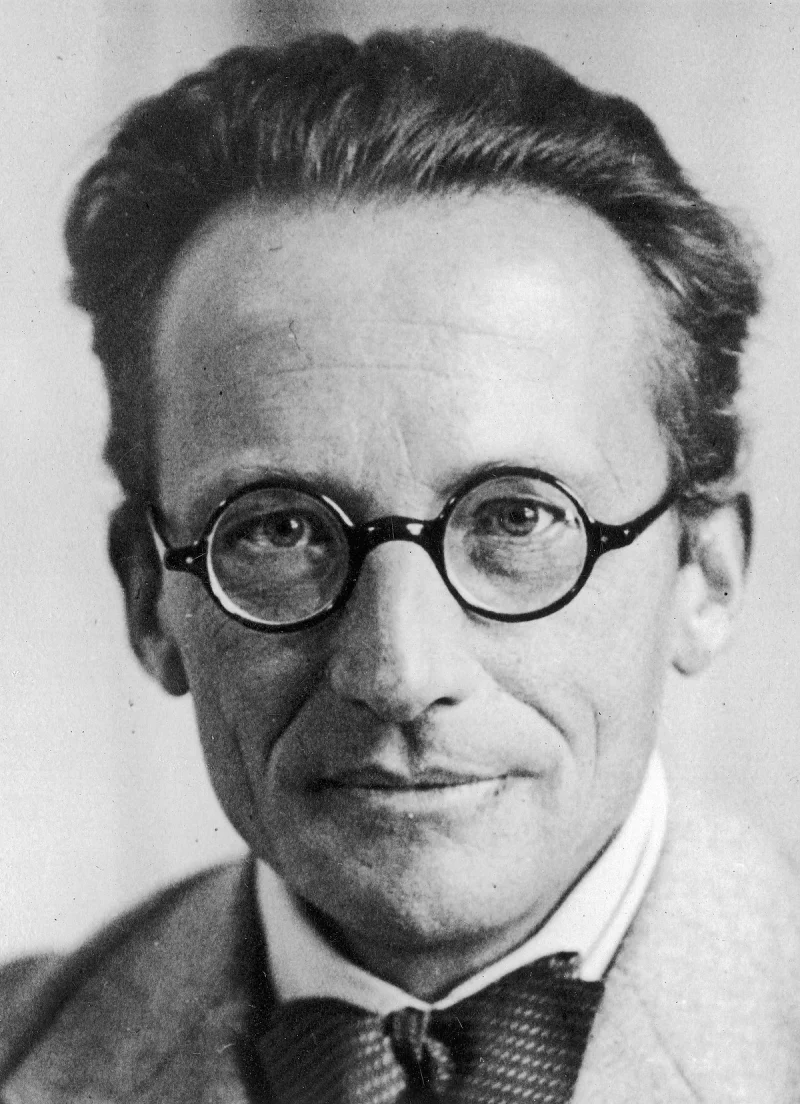Short Summary
Erwin Schrödinger was a pivotal figure in the development of quantum mechanics. Born in 1887 in Austria, he is best known for his formulation of the Schrödinger equation, which describes how the quantum state of a physical system changes over time. He gained fame for the thought experiment known as "Schrödinger's cat," which illustrated the concept of superposition in quantum theory. Schrödinger's work has had a profound impact on both theoretical physics and the philosophy of science.
Early Life & Education
Erwin Schrödinger was born on August 12, 1887, in Vienna, Austria. His father, Rudolf Schrödinger, was a botanist, and his mother, Georgine Emilia Brenda, hailed from a family of academics. He was educated at home until the age of eleven, when he attended the Akademisches Gymnasium in Vienna. His early education was broad, encompassing languages, the arts, and the sciences. Schrödinger enrolled at the University of Vienna in 1906, where he studied under prominent physicists like Franz Exner and Friedrich Hasenöhrl, receiving his doctorate in 1910. These formative years laid the groundwork for his future contributions to physics.
Career Highlights
Schrödinger's career was marked by several significant achievements in the field of physics. After serving in World War I, he held various academic positions across Europe, including prestigious roles at the University of Zurich, the University of Berlin, and the University of Oxford. In 1926, he published his groundbreaking work on wave mechanics, introducing the Schrödinger equation. His work provided a robust mathematical framework for understanding quantum mechanics, complementing the matrix mechanics developed by Werner Heisenberg. In 1933, he was awarded the Nobel Prize in Physics alongside Paul Dirac for their discoveries in atomic theory.
Major Achievements
- Formulation of the Schrödinger equation: A fundamental equation in quantum mechanics that describes how the quantum state of a system evolves over time.
- Nobel Prize in Physics (1933): Awarded for his contributions to the development of quantum mechanics, particularly wave mechanics.
- Schrödinger's cat thought experiment: A famous illustration of the concept of superposition in quantum mechanics.
- Authored "What is Life?": A book that explored the relationship between quantum mechanics and biology, influencing the field of molecular biology.
Famous Quotes
- "I don't like it, and I'm sorry I ever had anything to do with it."
- "The task is, not so much to see what no one yet has seen, but to think what nobody yet has thought, about that which everybody sees."
Interesting Facts
- He was multilingual, fluent in German, English, and French.
- Schrödinger's work influenced the development of quantum biology.
- He had a keen interest in philosophy and Eastern religions.
- Schrödinger was known for his unconventional personal life, including open relationships.
- He fled Austria in 1938 due to the political climate under Nazi rule.
Legacy / Influence
Erwin Schrödinger's contributions to quantum mechanics continue to shape the field today. His work laid the foundation for modern quantum theory, influencing subsequent generations of physicists. The Schrödinger equation remains a cornerstone of quantum mechanics, and his thought experiment has become a cultural reference point for discussions about quantum theory. Additionally, his interdisciplinary approach has inspired research at the intersection of physics and biology.
FAQ
Q: Why is Erwin Schrödinger famous?
A: He is famous for his contributions to quantum mechanics, especially the Schrödinger equation and the "Schrödinger's cat" thought experiment.
Q: What did Schrödinger win the Nobel Prize for?
A: He won the Nobel Prize in Physics in 1933 for his work on wave mechanics, a key development in quantum theory.
Q: What is Schrödinger's cat?
A: It is a thought experiment that illustrates the concept of superposition in quantum mechanics, where a cat is simultaneously alive and dead until observed.
Q: What is the Schrödinger equation?
A: It is a fundamental equation in quantum mechanics that describes how the quantum state of a physical system changes over time.












